Gaming's most ludicrous moral choices to unleash your inner villain
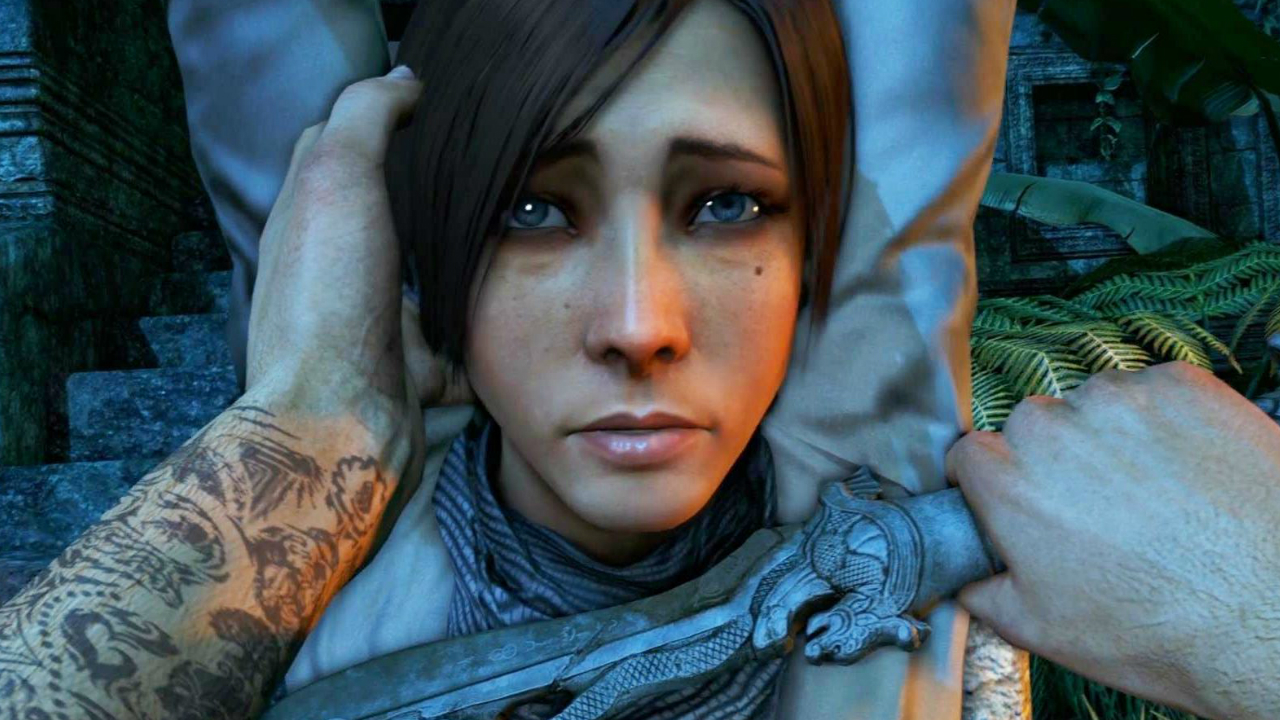
You're beating up bad guys, jumping around platforms, and generally doing video game-y stuff when you slam headfirst into an A-or-B (or C if the developer is feeling generous) type situation. You're probably not entirely happy with any of the options, but since your character is the only proactive person in the tri-county area, you'll have to make the call. Welcome to a Moral Choice.
Though some games and developers (hello, BioWare) are better known for this kind of dilemma than others, they've been cropping up all over gaming at least since Ultima 4. Unfortunately, most of them aren't even as nuanced Ultima 4. For whatever reason, many games present us with moral quandaries that make you question your character's judgment more than the cruel world that thrusts these choices upon them. Here are a few of the worst offenders.
inFamous lets you be a saint or a monster
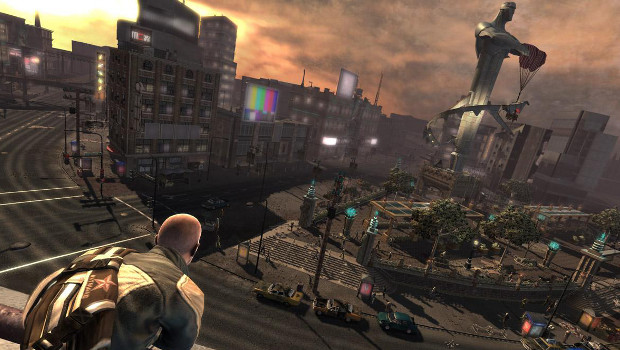
The choice: Bike-messenger-cum-lightning-god Cole MacGrath acquired his super powers in an incident that destroyed half of Empire City. Though he claims to have been unaware of his role in the tragedy until it was too late, most folks aren't so sure. Now the sequestered population is doing its best to survive while it waits for help from the outside world. Much of that help arrives in the form of airlifted supply drops, one of which Cole helps secure in Archer Square. But he and his friends could use that food and medicine, too
Why it's ludicrous: Cole has the option to either a) let the unruly crowd take all the supplies he just helped secure or b) electrocute them until they run away. He can be a good, selfless hero or a complete asshole, though he'll keep whining like a typical anti-hero either way. What's worse is that his girlfriend will just be mad at him if he takes the food. He doesn't need it; like most modern video game heroes, Cole subsists on a steady diet of collectibles.
Fable asks if you want to kill your sister
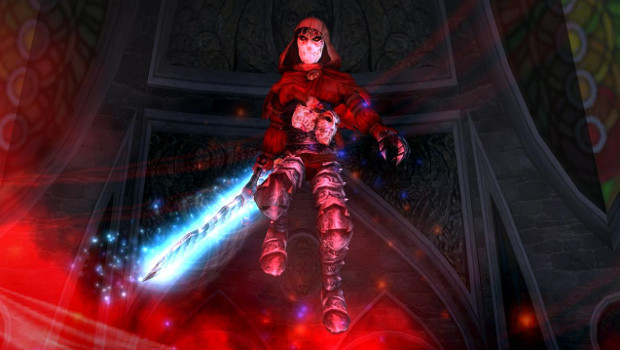
The choice: Ever since Jack of Blades burned his village down and killed (one of) his parents, the Hero's entire life has led to a final confrontation with this aspect of evil and chaos. With all of his powers at their peak, the Hero must face down Jack of Blades to prevent him from taking over the world and doing evil stuff, yada yada yada. The important part is that cool Sword of Aeons that Jack is waving around.
Why it's ludicrous: The only way to help the sword reach its destructive potential is to anoint it with your family's blood - that's why Jack wants to kill you and your sister. Tough dilemma, right? You could grab the sword, kill your sister, then use the sword's power to destroy Jack - for the greater good and all that. But it's actually not that tempting, seeing as you can only make the choice after you've finished the final battle, won the game, and proved yourself the baddest chicken chaser in Albion. What do you need that blood sword for now? Fine, she can live, whatever.
Far Cry 3 asks if you want to kill your girlfriend
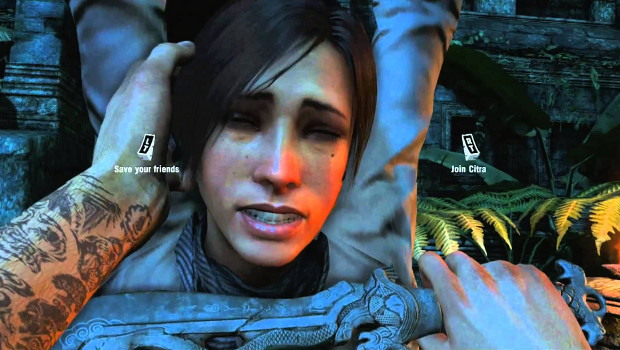
The choice: Far Cry 3 sets a group of rich, good looking white kids loose on an island somewhere in the Pacific. Naturally, they end up kidnapped by human traffickers. The only one who manages to escape with his throat un-slit goes Rambo on said traffickers and frees all of his buddies from their captors. The only problem is the native resistance who helped him out before wants him to sign on permanently, and to seal the deal with the blood of his girlfriend.
Weekly digests, tales from the communities you love, and more
Why it's ludicrous: Ok, yes, Ram-bro was clearly beginning to enjoy the devastation a bit too much, as evidenced by his incidental dialogue changing from 'frightened gasps' to 'enthused whooping' over the course of the campaign. But just imagine this in any context where you don't have a button prompt in front of you: kill your girlfriend and all the rest of your buddies, who you just spent this whole game rescuing, or don't. By the way, the name of this mission is 'Hard Choices'. Way to ask the tough questions, Far Cry 3.
Jedi Knight was asking if you wanted to kill your girlfriend all along
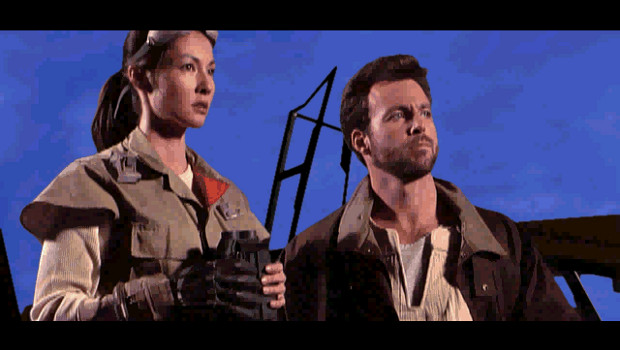
The choice: Apparently it's dangerous to be a woman in a male main character's life when moral choices could come up. Jedi Knight (OK, fine, Star Wars Jedi Knight: Dark Forces 2) was the first Star Wars video game to actively tempt players with the dark side of the Force. By investing in evil force abilities like remotely choking fools or shooting lightning out of his fingers, which were naturally way cooler than healing himself or doing mind tricks, protagonist Kyle Katarn risks succumbing to the same temptation that turned Anakin Skywalker into Darth Vader. You also get evil points for killing innocents and other dickish stuff.
Why it's ludicrous: That all sounds pretty fair, until you get to the end of the game. That's when the antagonist Jerec offers Kyle a deal: either kill his love interest Jan or die. If the player has made Kyle into a dark side infused engine of red-hot vengeance he goes along with it and kills Jan. Instead of, y'know, lighting up Jerec like a Christmas tree. Then the bad guy still tries to kill him and Kyle takes him out, too. I guess the dark side of the Force just makes you want to kill everybody?
BioShock Infinite doesn't care whether you throw the ball
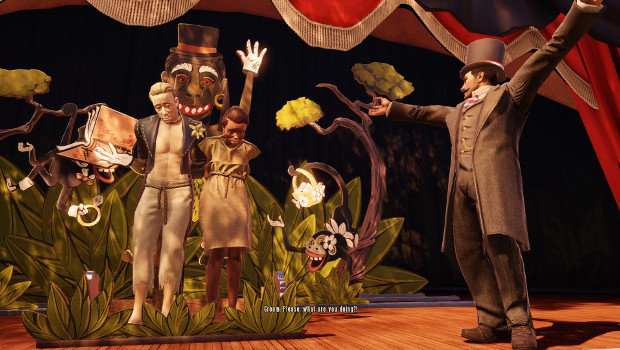
The choice: Booker DeWitt is just getting over the fact that he's walking around on a city that floats miles above the earth's surface when he wanders into a giant jamboree. Everybody's having a good time and singing 'Goodnight Irene', and doing, y'know, early 20th century stuff. He wins a raffle, despite trying to keep a low profile, and his reward is being the first to lob a baseball at a mixed-race couple. Does he try to blend in or bean the asshole in charge of the racist shit show?
Why it's ludicrous: It doesn't actually matter at whom you choose to lob the ball - a couple of cops grab Booker before it leaves his hand when they recognize him as 'The False Shepherd'. And if the prospect of loot could sway you one way or the other (you monster), either the couple or the asshole's assistant will show up later on to give you the same item. Maybe it's a joke about predestination at the player's expense? Or maybe it's just asinine.
The Deus Ex series is a bit indecisive
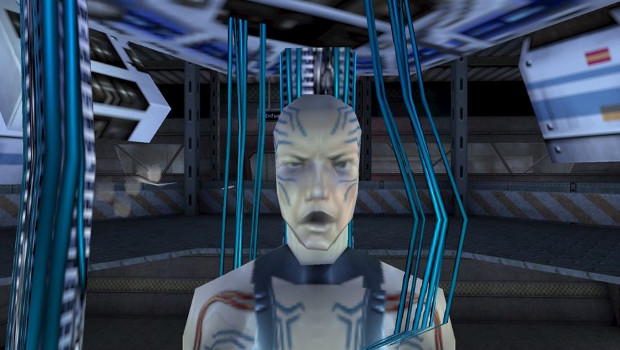
The choice: JC Denton has fought, talked, and hacked his way deep into Area 51, home to the all-powerful AI known as HELIOS. It holds control over all of the world's communication, and was set to be taken over by the nefarious Bob Page before JC foiled his plans. Now JC has a decision to make: join the Illuminati and use HELIOS' power to guide the world from the shadows, merge with HELIOS and become an omniscient and theoretically benevolent dictator, or blow the whole thing up and free humanity (but also send it back to the dark ages).
Why it's ludicrous: Actually, this is a pretty cool moral choice as far as trichotomous endings go. The only problem came a few real-world years later. The developers of Deus Ex 2: Invisible War just couldn't decide which ending they wanted to keep working from... so they made all of them true-ish, thus invalidating the urgency and agency players felt over the cyberpunk world at the end of the first game, and making nothing that players themselves experienced stick as the whole story. Yeesh. Since then, Deus Ex has stuck to prequels.
Mega Man Legends 2 turns a darker shade of blue
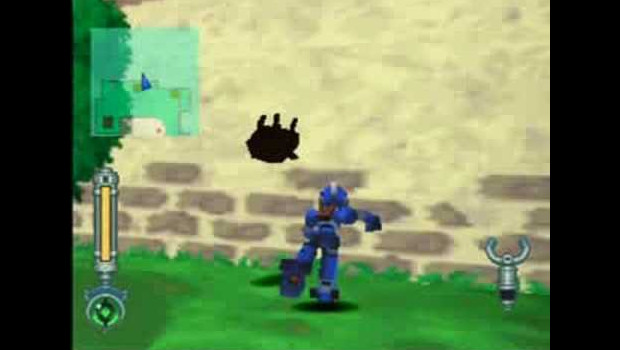
The choice: In Mega Man Legends 2, the search for the Mother Lode by the Casketts and their adoptive son Mega Man Volnutt continues. The family travels to several new islands, plunging deep into forgotten catacombs filled with ancient technology in the hopes of finding riches and more information about Mega Man's mysterious origins. When he's not in those dark labyrinths, he can run around villages and kick pigs.
Why it's ludicrous: Yep, kick pigs. It's the fastest way to notch Mega Man over to the dark side (literally, his armor gets darker as he gets badder) so he can buy stuff from the neighborhood black market dealer. And once the pork-punter gets tired of all the villagers sneering at him and his non-kosher actions, he can make a generous donation to the church and return to good societal standing. Talk about indulgences.
Mass Effect 3 colors inside the lines
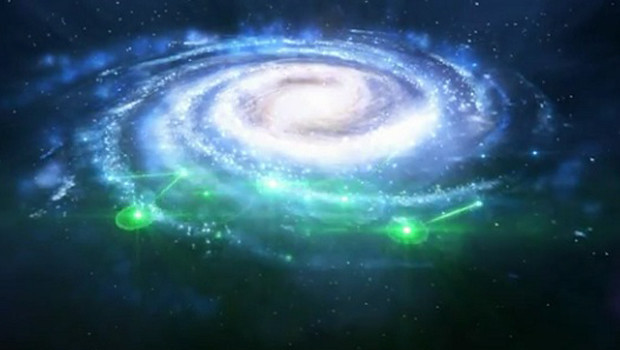
The choice: Commander Shepard has faced public derision from the leaders of the galaxy. Shepard has battled against seemingly unstoppable forces and lost some of his or her closest friends in the process. Shepard has literally died and come back again (wait, was this all a biblical metaphor?) to stop the Reapers' galaxy-destroying threat. And when Shepards' finest hour finally arrives, it comes in the form of three handily color-coded options.
Why it's ludicrous: All those choices, all those sacrifices, all those moments of uncertainty, every Paragon speech, every Renegade interruption, every wary comrade recruited, every cherished companion killed, every node mined, every thresher maw thrashed, it all came down to this. The same three color-coded options for every kind of Shepard: control the Reapers, destroy the Reapers, or do some space-hippy stuff that somehow connects all organic and inorganic life forms. The Extended Cut DLC added some post-choice, erm, color in the form of illustrated epilogues (and a fourth, fatal option), but the main event was over. Despite how amazingly reactive the rest of the trilogy had been to player actions, in the end, it had all come down to that.
Those are some of my favorite so-evil-they-are-good ethical quandaries, but we could go over this all day. So why not put forward some suggestions of your own in the comments section? It's that or demolish a crowded orphanage. Sorry, I don't make the rules.
I got a BA in journalism from Central Michigan University - though the best education I received there was from CM Life, its student-run newspaper. Long before that, I started pursuing my degree in video games by bugging my older brother to let me play Zelda on the Super Nintendo. I've previously been a news intern for GameSpot, a news writer for CVG, and now I'm a staff writer here at GamesRadar.



